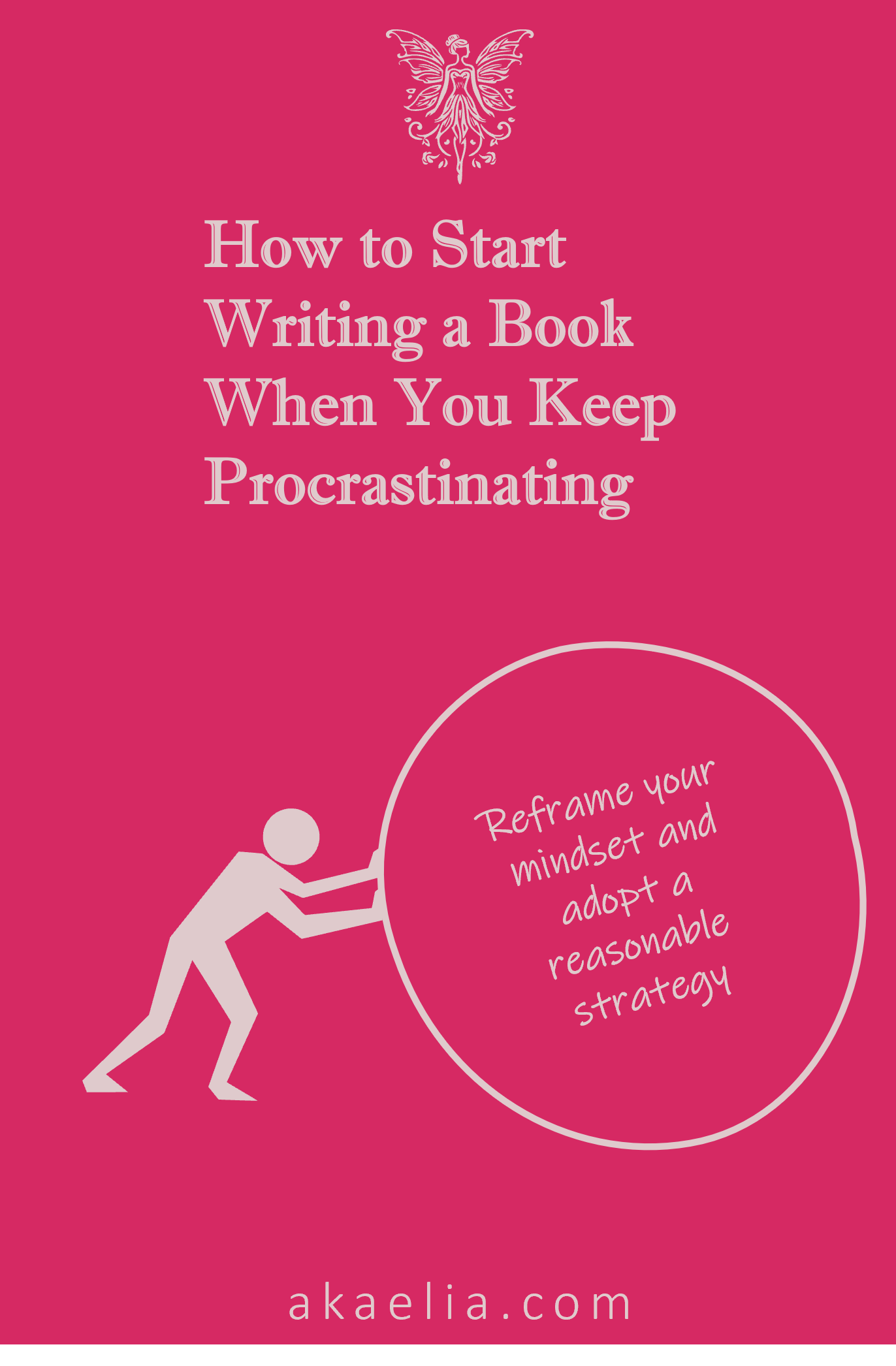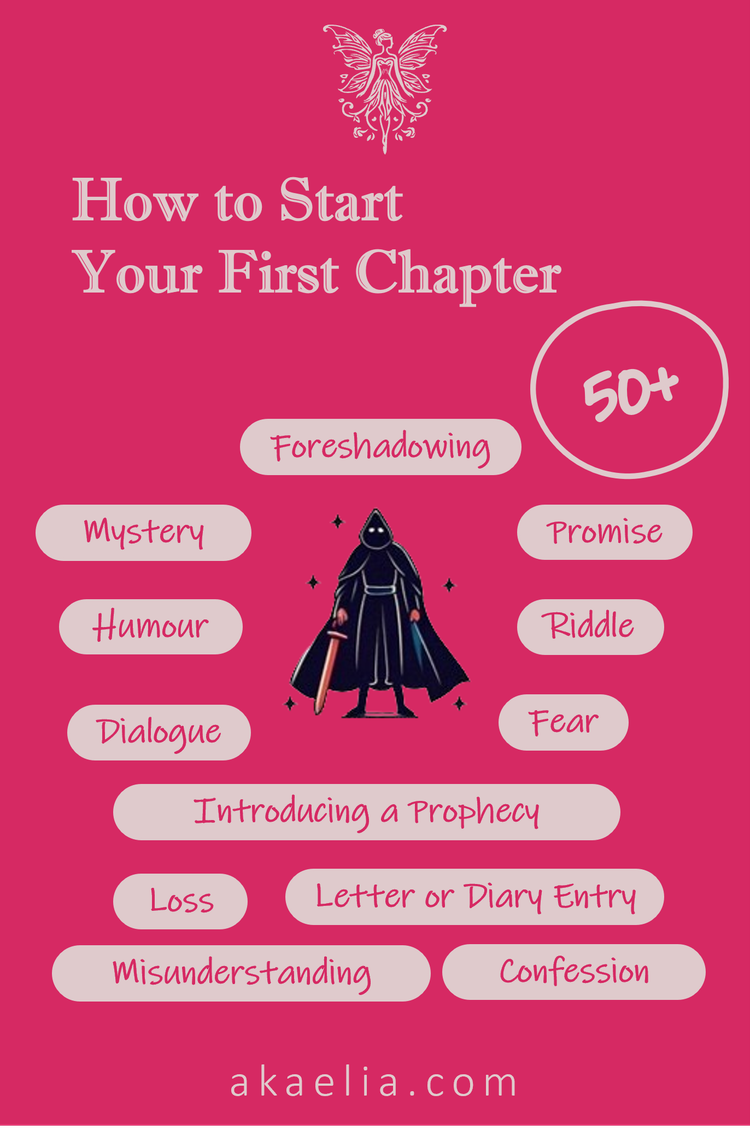From Daydreams to Drafts: A Procrastinator’s Guide to Writing a Book


I remember sitting at my desk, the blank screen in front of me seeming more like an insurmountable wall than a canvas for my thoughts. My mind was a whirlwind of ideas, characters, and plots, all playing out vividly in my daydreams. But when it came to translating those daydreams into words, I always felt overwhelmed. I guess it was because I knew how much energy and time I would have to put into it, all the potential plot holes I would have to fix, the missing details I needed to add for characters and places, and how to piece everything together in a way that makes sense.
This cycle of procrastination was all too familiar. I was living in my head, often preferring the comfort of my imaginary worlds to the reality of putting pen to paper. As one writer described it in an online writing forum, I was a maladaptive daydreamer. My daydreams were so intense and detailed that they began to interfere with my daily life. Not knowing how to start and what to write was a mental exhaustion.
But I wasn’t alone. Many writers in the online forum shared similar experiences. Some found solace in their daydreams, using them as a source of inspiration for their writing. Others, like me, struggled to balance their active imagination with the demands of the real world.
That’s when I realized something needed to change. I needed to harness my daydreams, not be ruled by them. I needed to overcome my procrastination and start writing. This guide is a result of that journey. It’s a collection of strategies and insights from my experiences and experiences of those in the writing community.
Step 1: Understanding Procrastination
Procrastination is often misunderstood or narrowed down as laziness, but it’s more like a form of self-regulation failure characterized by the irrational or rational delay of tasks. If you break it down, it stems from fear of failure, perfectionism, low motivation, low energy, unpreparedness, or even an overwhelming sense of task aversion. In our case, let's focus more on procrastination in writing.
The reasons why you procrastinate writing

Overwhelmed
This is a core reason for procrastinating. Writing projects can often seem overwhelming, especially large ones like a novel. This can lead to procrastination as you may not know where to start.
The thought of all the writing, editing, and brainstorming to fix problems, such as plot holes or missing character backstories, can make one anxious. Each of these steps requires different skills and mental processes, which can be daunting, especially for beginners.
Not to mention that one often has to juggle writing with other commitments such as work, school, and relationships.
💡Our Advice
You can start by acknowledging that writing a book is an extensive project, and that is okay. As with any project, you can start by breaking it down into smaller parts to work on it more effectively. Every time you feel overwhelmed, take a deep breath and remind yourself you can do this, one step at a time.
Inexperience Leading to Self-Doubt
The most writing many of us have done would be limited to essays of a few pages. Those who have pursued higher education and worked on a thesis have a better perspective to tackle a large project like this, but this is not the case for everyone. Perhaps, your experiences and grades at school deteriorate your confidence.
💡Our Advice
Even the most accomplished writers started from where you are now. The important lesson is to keep persevering and learning as you go. Think of your writing project as a new learning experience. Take your time and learn whatever you need to learn as you progress in your project.
In addition, do not forget that there are many writing tools and technologies these days that can give a significant boost to your writing project.
Fear of Failure
Many new writers fear that their work won’t be good enough or that they won’t be able to get any tangible benefits from taking on such an extensive writing project.
💡Our Advice
Failure is hard to take for anyone and in any domain. We just need to learn to reframe our perspective toward failure in a more positive manner.
You probably heard the saying of taking failures as part of the learning experience. This is true. However, often, those who fail will attempt to resonate with this idea almost immediately without processing their thoughts and feelings. This results in a false sense of peace and confidence as they prepare to tackle a new project. If you do not want to stumble later, it is important to properly acknowledge and process the failures.
Also, remember that you have the option to keep your writing a secret. This would help remove any kind of fear of failure, since no one will know about it until you are ready.
Perfectionism
Some are so concerned about making their work perfect that they end up not starting at all. They harbour a fear that transforming their daydreams into written words might result in a less-than-perfect rendition of their original thoughts.
💡Our Advice
This is definitely a hard one. You should approach this issue by telling yourself that there are no constraints placed on you. What we mean by this is that you could take all the time you need to perfect your writing. In the worst case, you could destroy it all if you decide to stop working on your project.
Did you know that writing down your thoughts and dreams will help perfect your dream world? This is due to the difficulty of keeping track of everything in your imaginary world simultaneously. Even though, as you write it down, it may be not perfect, it gives you many windows of opportunity to improve elements of your imaginary world.
Life Interferences
Will I ever finish? This is a question that comes up in the minds of those procrastinating. Many aspects of life can interfere with their writing, and they are unsure if they will ever complete their book. Some of us must balance between work, family, friends, and school. This can be challenging as we may not have enough mental energy for writing. Financial stress is another aspect that makes beginners hesitate.
💡Our Advice
As you start, you can treat writing as a hobby. You are doing it for yourself; this should not be about money or fame. Writing your book is something you can work on whenever you get the time. Soon enough, you will learn to make time for this. More about the strategies down below.
Step 2: Applicable Tips & Strategies

Turning daydreams into drafts, one word at a time. So, how do you do it? Here are some strategies:
Write Down Whatever You Remember
Tools: Google Docs, MS Word, any other text editors, or any note-taking app

Write about your thoughts, daydreams, and dream world. Don't worry if you cannot write more about certain things. You can get back to it later and add to it. This will help you visualize all the elements of your potential story and dream world.
Staying organized is key. You do not want to get confused and search for the most updated version of your writing on the various platforms you used. We suggest Google Docs or Microsoft Word as your main platform because of how easy it can be to stay organized and for their reliability. Use a note-taking app on your smartphone to note down ideas whenever you are not near your computer.

Dream & Write Constructively
When you daydream, try to do so constructively. Have a clear goal in mind and work towards it, even if the process isn’t always pleasant.
Focus on developing a character, a specific plot, or an environment as you gather inspiration from various sources. Questions are a good way to keep yourself anchored in your goal. For example, if you need to develop a specific plot, frequently asking yourself a series of relevant questions can help channel your inspirations more effectively.
Here are some questions you could ask:
-Why did Character A do this to Character B?
-How did Character A find Item X?
-How did Character B know how to find Character A?
-What is Character A's purpose?
-What kind of relationship should Character A and Character B have?
Develop a Writing Routine
Consistency is key, but you know that already. You need a writing routine that is suited to your needs. Some prefer the daily writing, while others prefer dedicated weekends to do the bulk of their writing. Which one would suit you the most? The one you see yourself using for the next few months or year. You could also create an approach that mixes these two methods.
You also need to figure out, during which specific times of the day and the places, you are most focused and inspired (or can get inspired) for writing. Some cannot bring themselves to write if they know they have something else planned later on, such as work or school. There are also others who need an appropriate spot to do their writing. For instance, a beautiful coffee shop, but it might not be your thing if it is crowded with people. These are things you have to test for yourself, decide which ones are the dealbreakers, and where to compromise.
Next, you must figure the reasonable amount of quality hours you can put into writing. It is always advised to start with an hour or two, and see if you can do any additional hours. Time management techniques like the Pomodoro Technique, where you work for a set amount of time (e.g., 25 minutes) followed by a short break (e.g., 5 minutes), can help manage procrastination.
Finally, you will need to build the habit of actively chasing inspiration, not just hoping it appears. Here are some image writing prompts that can help you start writing.
Set Realistic Goals
Setting unrealistic goals can lead to feelings of overwhelm and procrastination. Start with small, achievable goals, like writing for 15 minutes a day, and gradually increase as you become consistent.
Focus on subgoals. Your main subgoal for now is to take the steps to write your first draft.
Practice Self-Care
Writing can be mentally exhausting. Make sure to take regular breaks, get plenty of rest, and engage in activities that help you relax and recharge.
If your self-care is not in a great spot, then it would be something you need to figure out even before you start writing. You will need to diminish and hopefully remove your bad habits that could impact your writing, and be mindful of where your mental energy is being spent on.
Seek Support
Join a writing group or find a writing buddy. Sharing your experiences and challenges with others can provide emotional support and practical advice. You can also get inspired by just reading what others have written, the problems they face, and helping them.
Remember, writing is a journey. It’s okay to daydream and it’s okay to procrastinate sometimes. What’s important is that we keep moving forward, turning our daydreams into drafts and our drafts into finished books.



Comments ()